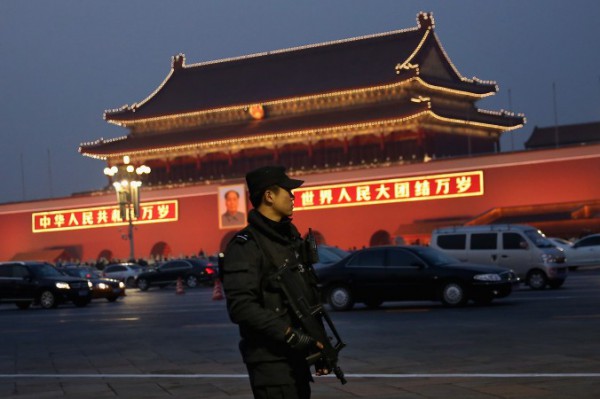
Reporters Without Borders (RSF) has issued a new report, The Great Leap Backwards of Journalism in China, revealing the extent of the regime’s campaign of repression against the right to information. The report especially examines the deterioration of press freedom in Hong Kong, which was once a world model but has now seen an increasing number of journalists arrested in the name of “national security.”
Throughout China, to receive and renew their press cards, journalists will soon have to undergo a 90-hour annual training partly focusing on “Xi Jinping Thought.” Journalists are already required to download the “Study Xi, Strengthen the Country” propaganda application that can collect their personal data.
At least 127 journalists (professional and non-professional) are currently detained by the regime. The simple act of investigating a “sensitive” topic or publishing censored information can result in years of detention. And the number of forbidden topics keeps rising. Not only those typically deemed “sensitive”—such as Tibet, Taiwan and the 1989 Tiananmen Square massacre—are subject to censorship, but now also natural disasters, the #MeToo movement, and the government’s handling of the COVID-19 crisis. At least 10 journalists and online commentators were arrested in 2020 for attempting to inform the public about the COVID-19 crisis in Wuhan. To this date, two of them, Zhang Zhan and Fang Bin, are still detained.
The media blockade in Xinjiang remains in place, with ethnic Uyghur journalists and commentators especially targeted. Seventy-one Uyghur journalists are currently detained, comprising more than half of the journalists imprisoned in China.
And of course Hong Kong journalists are endangered by the new National Security Law. Deliberately vague, the law, imposed by Beijing on Hong Kong last year, has since been used to prosecute at least 12 journalists and press freedom defenders, including Apple Daily founder Jimmy Lai, all of whom risk life sentences.
The People’s Republic of China ranks 177th out of 180 in the 2021 RSF World Press Freedom Index, only two spots above North Korea. The special administrative region of Hong Kong, once a bastion of press freedom, has slipped from 18th place upon the index’s creation in 2002, to 80th place in 2021.
Worldwide trend
China is, alas, merely among the worst offenders in a global trend over the past years. A new report from the Committee to Protect Journalists (CPJ) finds that the number of reporters who are behind bars worldwide reached a global high in 2021. CPJ finds 293 journalists were imprisoned, at least 24 were killed as a result of their work, and another 18 died under mysterious circumstances as of Dec. 1 this year.
2021 marks the sixth consecutive year that CPJ has recorded over 250 imprisoned journalists worldwide. The finding signals “a growing intolerance of independent reporting.” The report charges that “emboldened autocrats are increasingly ignoring due process and flouting international norms to keep themselves in power.”
According to CPJ, the world’s five worst jailers of journalists are China, Burma, Egypt, Vietnam and Belarus, with Turkey and Saudi Arabia close behind.
Photo: chinaworker.info





Has China freed vlogger who filmed Wuhan lockdown?
The whereabouts of a Chinese citizen journalist imprisoned for covering the early days of the COVID-19 pandemic as a vlogger is still unknown a day after she was expected to have been released, having served her four-year sentence. Supporters say they are unclear if Zhang Zhan had actually been freed. International media monitors and human rights groups had said that Zhang was wrongfully prosecuted, and called for her immediate release because of her deteriorating health. (BBC News)
China urged to release citizen journalist Zhang Zhan
The Observatory for the Protection of Human Rights Defenders requested the urgent intervention of Chinese authorities regarding the arbitrary detention and ill-treatment of citizen journalist Zhang Zhan.
Zhang Zhan is accused of “picking quarrels and stirring up trouble.” Currently, there is no information about Zhang Zhan’s situation at the Pudong Detention Center in Shanghai due to pressure on her lawyer not to disclose case details publicly. The date for the hearing is still unknown, but prosecutors are seeking a prison sentence of four to five years. (Jurist)
Second conviction for journalist Zhang Zhan
The UN Office of the High Commissioner for Human Rights (OHCHR) on Sept. 22 said reports that citizen journalist and former lawyer Zhang Zhan has been handed a second four-year prison term on the charge of “picking quarrels and provoking trouble” are “deeply disturbing,” calling for her immediate and unconditional release. (Jurist)